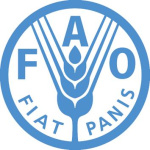- 産業: Agriculture
- Number of terms: 87409
- Number of blossaries: 0
- Company Profile:
Established in October 1945 with the objective of eliminating hunger and improving nutrition and standards of living by increasing agricultural productivity, FAO coordinates the efforts of governments and technical agencies in programs for developing agriculture, forestry, fisheries, and land and ...
A single multifunctional toxic protein that has been created by combining the coding regions of various genes.
Industry:Biotechnology
A single or multicellular, absorptive (root hair) or secretory (glandular hair) and sometimes only a superficial outgrowth (covering hair) of the epidermal cells. The term trichome is often used but includes outgrowths from tissue below the epidermal layer. Distinguishing between hairs and trichomes can be difficult. Trichomes are usually connected to the vascular system, whereas hairs lack a vascular connection.
Industry:Biotechnology
A single vaccine that is designed to elicit an immune response either to more than one infectious agent or to several different epitopes of a molecule.
Industry:Biotechnology
A single-ring, nitrogen-containing base present in nucleic acids; cytosine (C) and thymine (T) are commonly present in DNA, whereas uracil usually replaces thymine in RNA.
Industry:Biotechnology
A single-stranded DNA or RNA fragment used in genetic engineering to search for a particular gene or other DNA sequence. The probe has a base sequence complementary to the target sequence and will thus attach to it by basepairing. By labelling the probe, it can be identified after subsequent separation and purification.
Industry:Biotechnology
A slender graduated tube into which small amounts of liquids are taken up by suction, for measuring and transferring.
Industry:Biotechnology
A small DNA segment that links genes in order to yield a functional gene encoding an immunoglobulin.
Industry:Biotechnology
A small glass surface to which has been fixed an array of DNA fragments, each with a defined location. A typical DNA chip would contain 10 000 discrete spots (each containing a different DNA fragment) in an area of just a few square centimetres. When a solution of fluorescently labelled DNA fragments is hybridized to the chip, spots to which hybridization occurs are visible as fluorescence. If the spots on the chip are genes (expressed sequence tags, q.v.), hybridization with cDNA from a particular tissue shows which genes are expressed in that tissue. If the spots are short, synthesized oligonucleotides (approximately 25 bases) corresponding to that part of a gene containing a single nucleotide polymorphisms (SNP)(q.v.), with a separate spot for each of the 4 possible bases at that site, hybridization with genomic DNA from an individual plant or animal enables that individual to be genotyped at as many SNP loci as are represented on the chip. The big advantage of DNA chips is the extent to which the process of genotyping can be automated, thereby enabling huge numbers of plants or animals to be genotyped for a huge number of loci.
Industry:Biotechnology
